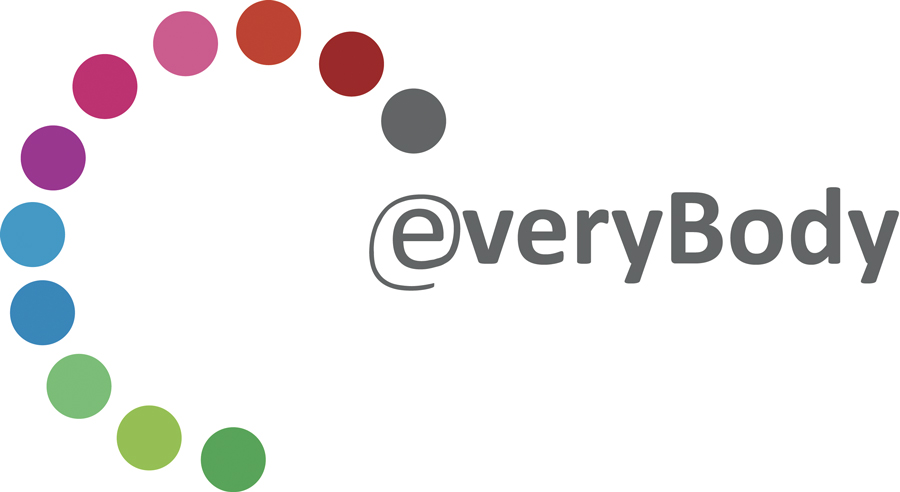The research team of everyBody wants to tackle eating disorders, with the help of 2 interventions. everyBody is an online intervention for women to help them raise body positivity; everybody Plus is an intervention that aims to bridge waiting times for women in need of treatment for eating disorders. Both interventions were developed as part of the project ICare, a European research project, funded by the European Union. We spoke to Barbara Nacke, research coordinator, about her motivation and the ICare project.
Barbara Nacke is psychologist and the coordinator of the everybody project at the Technical University of Dresden, where she also earned her psychology degree. In 2015, she became part of the research team, and has been part of ICare since the start of the project. Her research focus is the dissemination of online prevention programmes for eating disorders and diet-related diseases in the general population.

Focusing on body image
‘Since my early days at university, I have had an interest in the image people have of their own body. In the beginning, I focused mostly on the body image of men, but today I research the body image of women,’ says Nacke, explaining her career pathway. Her thesis, with the title “Basics of and interventions in eating disorders and associated disorders", focused on men’s body image. After joining the ICare team, women’s body image came into Nacke’s view.
Helping women to be more satisfied with the way they look
With everyBody, the TU Dresden offers an online prevention programme for eating disorders and diet-related disorders and complaints. The team also evaluates how a customised version of the programme can help women who are already suffering from an eating disorder by bridging the waiting time for a therapy session. In both cases, the goal is to help women be more satisfied with the way they look, without changing anything about their bodies or developing harmful behaviour. In Germany, 4,000 women applied to follow the programme as part of the research. And in the UK and Germany, the trial of the self-help version of the intervention had 250 participants.
‘After the two programmes – everyBody and everyBody Plus - were developed, we launched them at the end of 2016. The interest was quite big, especially for the preventive program, everyBody. The feedback from the participants has been very motivating and positive’, explains Nacke.

The difference between both programmes
‘everyBody offers universal prevention for every woman,’ says Nacke, when talking about the aim of the interventions. ‘The project is about balanced eating habits and exercise routine, and growing one’s self-esteem. Binge eating is also one of the problems that is tackled in everyBody. It’s our goal to increase the health and wellbeing of our users.’
The interventions offer prevention for every woman
The intervention everyBody Plus is specifically designed for women who are on the waiting list to be treated for binge eating disorders and bulimia. This intervention focuses on binge eating and eating habits, and offers mostly psychoeducation around those topics. The idea is that on the one hand, the waiting list is experienced differently by the women who are on it, because they can already start working on some of their problems. On the other hand, the binge eating part can already be addressed, which helps save valuable treatment time.
In the interview Dr. Ina Beintner, who is also a researcher in the project, gave earlier, she explained why a positive body image is an important topic in everyBody and for the TU Dresden. The treatment of eating disorders is one of the specialties at the TU Dresden and has been steadily developed in recent years. ‘The impact of an eating disorder on the lives of the people who have them is substantial. Eating disorders are often the cause of a great deal of suffering. Waiting for therapy places or how to bridge the waiting period is therefore an important topic that concerns us very much,’ explains Nacke the significance of the project.

A successful project
Overall, the project has been very successful, but Nacke can also find points of improvement: ‘In both programmes, we have found that people who are severely overweight, and the problems they face, have not received enough attention. The confrontation with their weight in everyday situations can be a great psychological burden. Finding a place to sit on the bus, or finding clothing that fits and they feel good in, for example, is something difficult they’re confronted with every day. This needs to be taken more into account in future interventions.’
The researchers are very satisfied with the results available to date for everyBody Plus and everyBody - they have brought the desired success. The developers of the everyBody programmes had the primary aim of reducing concerns women have about their body and their weight, ‘and we succeeded in doing so with a large number of participants’, concludes Nacke. ‘Especially the participants who received more intensive support showed good results.’
Many women succeeded in reducing their worries about their body or weight.
Ultimately, it is about helping people to better quality of life. So far, the conclusion of the researchers of everyBody shows that patients can be open to programmes such as theirs, and be successful in fighting against eating disorders. For Barbara Nacke, online interventions like everyBody are only the beginning: ‘The online offer, but also the need for online-based measures will continue to grow, especially as the political situation evolves. As it stands, much more is possible. And still new, meaningful innovations keep being developed that can be added to existing therapy.’
Do you want to know more?
To learn more about this specific research, find the interview we had earlier with dr. Ina Beintner about ICare and everyBody.
Or read about one of the other ICare research projects, CORE, that prevents stress and related complaints in students.
For other questions, please contact us.
